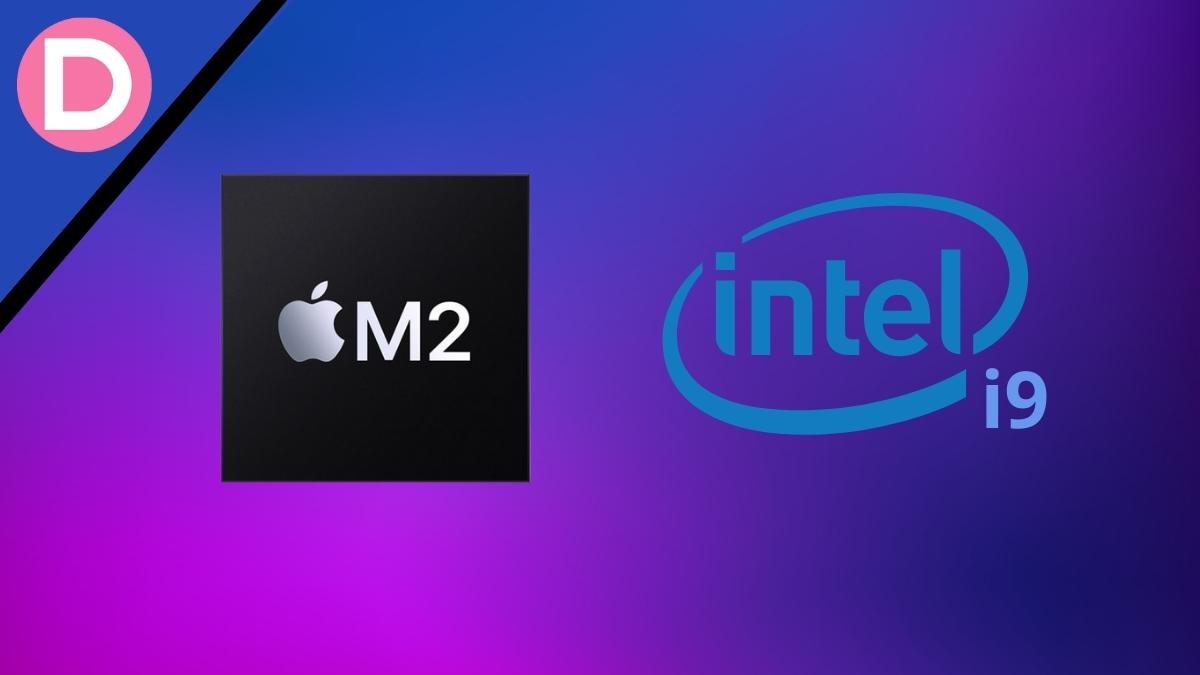Apple M2 is the brand’s most recent chipset launched for its MacBooks. The new chipset powers the latest MacBook Pro and MacBook Air. It’s a good upgrade compared to last year’s Apple M1 chipset. The chipset also beats the Intel Core i7 10-core variant in terms of performance. The chipset also has an excellent power consumption rate. However, we haven’t seen any in-real performance and review tests of the chipset.
It’s a powerful chipset built on TSMC’s 5nm fabrication node, featuring up to 20 billion transistors, an 8-core CPU, and GPU support for up to 10 cores. The company also claims that its Neural Engine is up to 40% faster than its predecessor. The chipset has emerged on Geekbench, revealing its benchmark scores and performance.
Apple M2 Benchmark: How well does it compete against Intel i9-12900K?
The first benchmark of the new M2 silicon has been out in the form of Geekbench listings. The benchmark scores fall in favor of the reports shared by Apple, which reports that the claims made by the company were pretty accurate. According to the brand’s claim, the M2 chipset has a 35% faster GPU, 18% faster CPU, and up to 40% faster Neural Engine than last year’s M1 silicon.
Vadim Yuryev first reported the Geekbench listing on the M2 silicon on Twitter. According to the benchmarks, the M2 chip in the MacBook Pro runs at 3.49GHz, compared to the M1’s 3.2GHz. Single-core performance with the M2 is approximately 11.56 percent faster than with the M1 chip, while multi-core performance is roughly 19.45 percent higher. Both the benchmark reports and Apple’s comparison show some reasonably similar results.
If we compare the Geekbench scores with the i9-12900K, a mobile Alder Lake variant chipset, the M2 scores similarly and even more in the multi-core, and the Intel i9 beats the M2 in the single-core score. The results are surprising as one is a desktop-class chipset while another is a full-fledged mobile Alder Lake variant.
The benchmark results are most likely from the M2 MacBook Pro unit. It is worth noting that the same chipset powers the MacBook Air and MacBook Pro, so the scores and performance may differ slightly. There is an apparent reason: the MacBook Pro has an active cooling system, whereas the MacBook Air has no fans. The MacBook Pro’s incredible system will allow it to maintain higher performance for extended periods, whereas the MacBook Air will have to throttle itself to avoid overheating.
More reviews and comparisons by the creators will shed more light on the chipset’s real-world usage. They can only provide estimates because benchmarks can never accurately represent a device’s real-world performance. However, Silicon chips are known for their long-term performance, and we expect this to continue in the successor.
What is your thought on the Apple M2 chipset? Do you think it can dust out the AMD and Intel chipsets? Do let us know by dropping a comment in your words down below.



